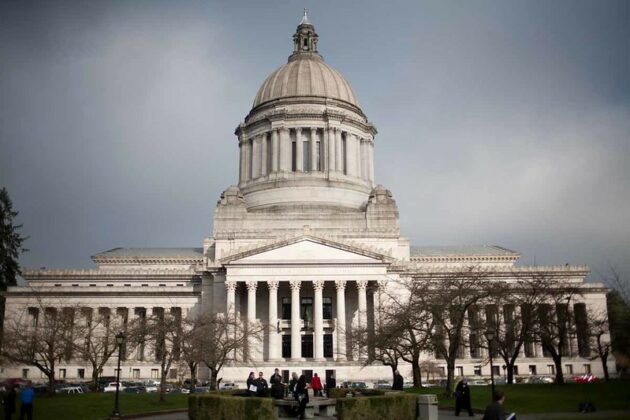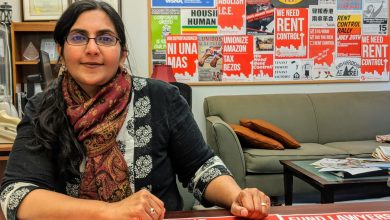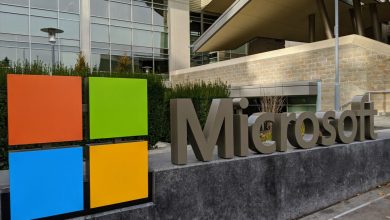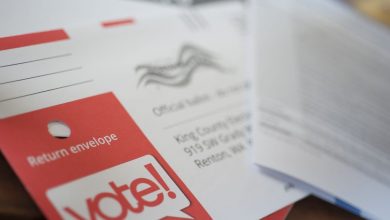Capital gains tax in Washington state: Is it about fairness and funding, or will it drive away startups?

Tech workers, business owners, public policy advocates and private citizens weighed in this week in favor of and against a proposed capital gains tax in Washington state.
A remote hearing of the House Finance Committee attracted 3,900 people, with 2,380 in support of SB 5096. The majority of Monday’s hearing, and the ongoing argument around the legislation, centered around whether the tax is a necessary way to help level the playing field among taxpayers in Washington state, or whether the action amounts to an unconstitutional state income tax that would ultimately drive businesses and entrepreneurs out of state.
The bill would levy a 7% tax on the capital gains from sales of assets, like stocks and bonds, that exceed $250,000. Sales of anything under $250,000 are exempt. Many forms of assets are also exempt, including real estate, retirement savings, livestock, timber, and the profits from the sale of sole proprietor businesses.
The tax is estimated to raise about $550 million annually starting in fiscal year 2023. The majority of the funds would go toward early education and childcare, with the remainder allocated for taxpayer relief. The Washington Department of Revenue estimates that by 2023, 8,000 taxpayers would be subject to tax.
The Washington state Senate passed SB 5096 25-24 on March 6. The bill is now in the House.
Here are some of the comments from some of those who testified:
In favor
Dylan Grundman O’Neill, a senior state tax policy analyst with the Institute on Taxation and Economic Policy, said that research shows that in Washington, more so than in any other state, “the higher your income, the lower your tax rate.”
“The top 1% pay an effective rate of only about 3%,” O’Neill said. “While middle income families pay rates three to four times that, and low income families pay nearly six times that rate. And not only is Washington’s tax system driving a wedge between the rich and the rest, it’s also widening the racial wealth gap. Black and indigenous Washingtonians, for example, pay respectively 7 and 11% higher tax rates than white households on average.
He called SB 5096 an opportunity to “mitigate those inequities” while raising significant new resources “to invest in people and communities.”
Kevin Litwack, a longtime software engineer currently working at the Seattle startup Amperity, said many in the tech industry chose the career because they believe in the transformative power of technology to make people’s lives better. And because it pays well.
“We’re extremely fortunate to benefit from that. But we don’t need a vast fortune,” Litwack said. “If we’re so lucky to be a part of a company whose success makes us wealthy, we would view it as an honor and an obligation to invest some of that back into our communities.”
Litwack added that opponents of the tax argue that it will cause so-called job creators and top talent to leave the state, and that yes, some of his peers will take their money and run.
“But I truly believe that even more will come to replace them drawn by the values of community and shared responsibility that our state embodies. And we, not those purely chasing wealth, are the ones you should want here to build Washington’s future.”
Ruth Lipscomb of Bellevue, Wash., used her testimony to mention the significance of a recent anniversary. She said that 35 years ago, on March 13, 1986, Microsoft stock was first sold to the public. The IPO led Lipscomb to retirement eight years later, with more money than she said she will ever need.
“For the last 35 years, my family has made a heck of a lot of money by selling our Microsoft stock,” Lipscomb said. “And the state hasn’t gotten a dime in taxes on those extraordinary profits. Sure we buy things with some of the money but most of it goes back into other investments that we later sell for more large profits. And again, the state gets nothing.”
Lipscomb said her family is one of the small number who will pay the tax every year. And though she and her husband have given away a lot of money over the years to nonprofit organizations working on problems like educational inequity, degrading climate and food insecurity, there’s one efficient and effective nonprofit that has never asked them for funding — the state government.
“So Washington lawmakers, you’re 35 years behind and asking me to pony up my share,” Lipscomb said. “I’m ready and waiting for you to take that small slice, an amount that I will never miss and use it to make life better for everyone.”
David Goldstein spoke out for Civic Ventures, the policy shop founded by venture capitalist Nick Hanauer. He criticized “disingenuous arguments” put forth by the Washington Technology Industry Association, which said that a capital gains tax would hurt Washington’s startup ecosystem.
“The WTIA either does not understand how capital markets work or they hope you don’t,” Goldstein said. “They claim the tax would shrink available capital and move it out of state. But the bulk of the capital funding Washington startups actually comes from out of state investors who would not be subject to the tax, whereas local investors would be regardless of where they put their money.
“They claim the tax would force companies to relocate to friendlier business climates,” Goldstein added. “But study after study finds zero correlation between tax rates and investment or growth. In fact, high-tax California, New York and Massachusetts attract by far the most venture capital.”
Hanauer reiterated those claims in his own Twitter thread during the hearing:
I find it obscene that @WTIA are in the WA state capitol fighting against a wealth tax on capital gains profits from lucrative stock options. To imply that anyone other than a small handful of me and my super-wealthy friends would pay this is a disingenuous scare tactic. #waleg
— Nick Hanauer (@NickHanauer) March 15, 2021
You know what actually attracts businesses? A state with well-funded public services, amenities, world-class institutions & infrastructure. The things taxes buy attract talented, smart people, which in turn attract wealthy VCs like me looking to make money through tech startups.
— Nick Hanauer (@NickHanauer) March 15, 2021
But when you see the @WTIA / CEOs / my fellow VCs opposing this remember they’re whining about a single-digit wealth tax on extraordinary stock & asset profits >$250,000 per year. If you made $251k you’d pay $70. REPEAT: These people are opposed to paying $70 on $251k in profits!
— Nick Hanauer (@NickHanauer) March 15, 2021
Against
Molly Jones, vice president of government affairs at the Washington Technology Industry Association, spoke for the group comprised of more than 1,000 tech companies in the state. Jones said she was arguing “on behalf of Washington’s startup ecosystem, as 80% of our members have 20 employees of fewer.”
Jones said shares in stock options are used as primary compensation strategy and way to incentivize early stage employees to take the risk of working for a startup. Taxing these gains, according to WTIA, penalizes these employees and encourages founders to form their companies in or relocate to other states.
“This tax comes at a time when startup employees have newfound and persistent ability to work from anywhere,” Jones said. “And we are concerned our startup ecosystem is at risk. We polled startups in our membership to better understand this dynamic — 19% surveyed have eliminated their headquarters since the beginning of the pandemic; 32% are evaluating whether to relocate their headquarters; and over 10% are already looking outside of Washington.”
Claudius Mbemba, CTO and co-founder of the Seattle startup Neu, said that the tax penalizes startups at an outsized rate.
“As you may know, startup founders and employees take stock and shares as compensation during the formative years of a startup,” Mbemba said. “As new entrepreneurs evaluate the tax landscape for their businesses, this tax will make Washington state less attractive. This tax will result in both startups leaving the state as well as a reduction in the talent pipeline as top talent will opt for more mature companies.”
PREVIOUSLY: Washington state tech community spars over proposed capital gains tax
Randa Minkarah, co-founder and president of Resonance AI, said her startup employs 13 people in Washington and the tax would hurt those employees and the broader startup ecosystem.
“Many of our employees are considering moving to states with lower cost of living or more competitive tax systems,” Minkarah said. “I strongly support continued investment in state programs to strengthen childcare and education. However, this newly proposed tax comes at a time when revenue is increasing. And a new tax is not necessary to fund these programs.”
Dann Mead Smith, president of Washington Policy Center, said if enacted, the tax would be the first standalone capital gains tax in the country, and would “add a new bureaucracy to Washington state government and cost all taxpayers millions of dollars to administer.”
“As an income tax, it would strip Washington of its no-income-tax advantage in attracting new businesses and would inevitably pave the way for broader income taxes to come,” Smith argued. “We know from experience that once in place, the income tax will be expanded to more people. And here in Washington, with tax revenues growing substantially and federal aid in the billions coming in soon, this is also an unneeded tax.”
Conclusion: So above is the Capital gains tax in Washington state: Is it about fairness and funding, or will it drive away startups? article. Hopefully with this article you can help you in life, always follow and read our good articles on the website: Ngoinhanho101.com





